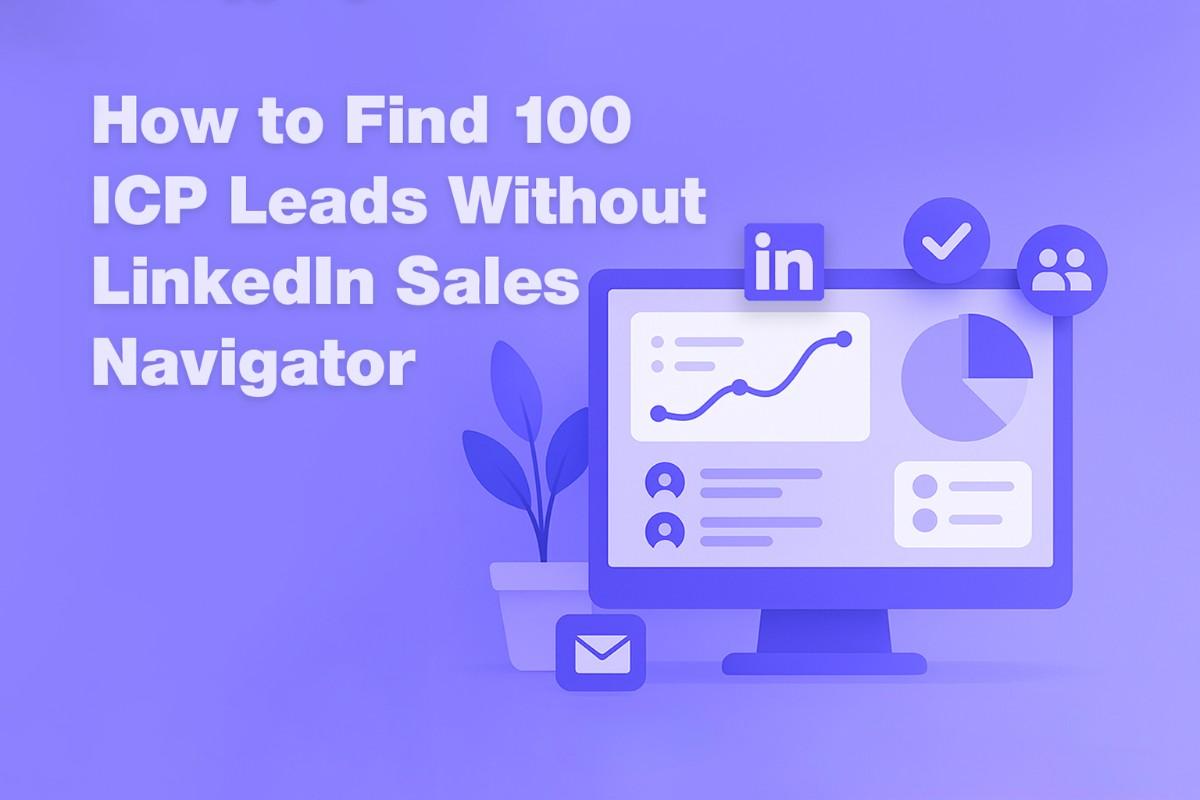Table of content
What Is a CRM ? Definition And Benefits
In today’s competitive business world, companies must build strong relationships with their customers to succeed. In this article, we’ll explore the CRM definition, its key features, benefits, and why it is essential for businesses of all sizes. We will also discuss who it is for, how it works, and how much it costs.
What is a CRM? – Definition of CRM
A CRM system is technology through which businesses can interact with existing and prospect customers. Essentially, it's just a software solution for enhancing the storage, organization, and tracking of customer information-that is, contact information, communication history, and purchases. CRM software is designed to help make business more efficient, strengthen relationships with its customers, and hence ensure business growth.
A core component of a customer relationship management system is to hold all customer data in one place. In this way, it allows for a 360-degree view of the customer, enables business organizations to give better service, personalize their marketing efforts, and increase sales. CRM software is offered in cloud-based or on-premise environments and supports various functions, including sales management, marketing automation, customer service, and lead management.
Advantages of a CRM System – Why is a CRM Important for My Business?
A CRM system is more than a contact management tool but a vital element of a successful business strategy. The significance of CRM systems lies in the fact that they help businesses to maintain a strong relationship with customers, enhance communication, and optimize various business processes. Here are some key advantages of CRM systems that depict why a CRM solution should be adopted by businesses:
1. Improved Customer Relationships: CRM systems help businesses keep track of customer interactions and history, which makes it easier to personalize communication and respond to customer needs. This leads to stronger customer loyalty and satisfaction.
2. Increased Sales and Revenue: Organizing customer data with insights into buying patterns makes businesses understand cross-selling and up-selling opportunities and therefore increase revenue. For example, CRM solutions for sales teams helps sales representatives to prioritize leads, manage pipelines, and close deals faster.
3. Effective Communication: All the communications done with the customers can be stored in one place so that consistent and well-informed communication takes place across different channels. The sales, marketing, and customer support are on the same page with every participant involved in customer-facing activities.
4. Better Data Analysis: CRM collects useful data regarding customer behavior and business performance. After analyzing the data, businesses can understand trends and forecast demand and make accurate decisions. CRM software features such as reporting and analytics tools provide the real-time insight to support managers in monitoring key metrics.
5. Improved Business Processes: Automation is another CRM system benefit. It means an organization can automate simple repeat tasks such as following-up emails, lead scoring, and data entry for increased employee time to high value activities.
6. Scalability: As the business scales so does the volume of interaction with customers and data, providing the flexibility to scale alongside an organization's growth- which is a great help toward long-term success.
Who is CRM for?
CRM for business is not a preserve of corporate organizations, but very important for small businesses, startup ventures, and even freelancers in need of upgrading their customer interaction processes. Irrespective of the industry or company size, CRM can be helpful; in more detail, CRM systems are for:
1. Sales Teams: Sales people work considerably using the CRM to handle all the leads, opportunities and relations with customers. The CRM sales team solutions enable easier follow-up on prospects while bringing deals to closure as it tracks interactions.
2. Marketing Teams: Marketing teams depend much on CRM systems for auditing segmented audiences, tracking of engagements as well as running focused campaigns. CRM in marketing is the study of consumer behavior and communication in maximizing conversions.
3. Customer Service Teams: A CRM system improves customer service through complete customer history available to agents, so agents can respond personally and rapidly. CRM and Customer Service integration allows issues to be resolved better and also improves customer satisfaction.
4. Small businesses and Startups: Even a small business will also require to be organized to manage their increasing customer numbers. CRM tools for small business are also relatively inexpensive and scalable thus allowing startups to manage their relationship with customers efficiently.
5. E-commerce Businesses: Here, CRM is used for customer purchase history, preferences and behavior, which in return generate targeted marketing efforts that build the rate of sales and customer retention.
6. Freelancers: Freelancers and consultants can use CRM systems for the management of client projects, communications, and payments in order to ensure smooth operations for their clients.
What is a CRM System?
A CRM system is much more than a contact list or digital Rolodex. A CRM system is a powerful tool that centralizes customer information and automates processes to enhance customer interaction. The following is a breakdown of the key functions that CRM systems perform:
1. Contact Management: This is the backbone of any CRM system because it consists of managing information of contact which includes names, phone numbers, email addresses, and possibly social media profiles. Customer interaction or contact with him also undergoes tracking; such tracks are accessed by teams involved within an organization.
2. Lead Management: CRM for lead management helps organizations manage leads and track them from the moment of initial contact to the moment they convert. Sales teams are able to identify high-potential leads and follow up at the right moment with the right messaging.
3. Sales Management: This software will enable the sales teams to manage the pipelines, predict revenues, and track performance. Reminders of tasks, follow-up on deals, sales forecasting, and much more can be streamlined into decision-making processes.
4. Marketing Automation: CRM has an array of automation tools which could be used in order to run campaigns for emails, social media marketing, targeted advertisement, among others. Such methods help to minimize manual effort, giving the marketing activities consistency and timely manner.
5. Customer Support: CRM systems give customer service teams real-time access to customer data, and they can respond to queries more effectively. By tracking support tickets, agents can make sure that no issue goes unattended, thus enhancing customer satisfaction.
6. Reporting and Analytics: The primary benefit of using a CRM system is its capability to create reports. The business can track performance based on custom dashboards, KPI tracking, and measuring marketing and sales activities.
Types of CRM Software
There are various types of CRM software. Each type targets specific business needs. The three main types of CRM software are:
1. Operational CRM: It is used to automate and streamline business processes, like sales, marketing, and customer service. It is mainly implemented to increase efficiency.
2. Analytical CRM: It uses data analytics for analyzing customer behavior and trends. This type of CRM helps businesses make informed decisions based on data insights.
3. Collaborative CRM: It tries to improve communication and collaboration between departments (like sales, marketing, customer service) to improve customer satisfaction.
Benefits of CRM Software
Incorporating a CRM system has numerous benefits of CRM software. These comprise:
1. Increased Productivity: An automated workflow and access to real-time data help eliminate time wastes on routine chores and dedicate it to strategic work.
2. Customer Retention: In-person contact and instant communication have helped customers in achieving a deeper relationship with better retention levels.
3. Higher Return on Investment: Better lead management along with more efficient sales process will result in a greater return on investment (ROI) from the CRM system implemented.
4. Improved Cooperation: CRM tools facilitate communication between different teams (sales, marketing, customer support) to effectively share information and insights among them.
5. Scalability: As your business grows, your CRM system can grow too. It helps your business deal with more customer info and talks over time.
How Much Does a CRM Cost?
The cost of a CRM system varies greatly depending on the size of your business, the features you need, and whether the solution is cloud-based or on-premise. Here's a general overview of CRM pricing:
1. Small Businesses: For small businesses, there are free or low-cost CRM tools available. Some cloud-based CRM systems offer plans starting at $10–$30 per user per month.
2. Small-to-Medium Businesses: CRM solutions for small to mid-sized businesses can range between $50–$150 per user per month depending upon the features and the flexibility in customization.
3. Large-Scale Solutions: For larger enterprises, enterprise-level CRM software can cost anywhere from $200 to $500+ per user per month, particularly when you require extensive customization and integrations.
Conclusion
CRM software is an essential software solution for businesses of any scale. It helps manage customer relationships by streamlining processes and providing insights in customer behavior. Be you using CRM for business, CRM solutions for the sales team, or CRM tools for small business use, the case is still the same- clear as day. A CRM system allows the business to increase their productivity levels, enhance customers' satisfaction, and eventually increase sales levels. Understanding the CRM system advantages and CRM software features can help businesses choose the best CRM solution for their needs and, ultimately, drive growth and success.
By using the right CRM system, businesses can build stronger customer relationships, optimize marketing efforts, and stay ahead of the competition.
Get your next meeting in a
matter of minutes.
Free Trial
Latest
The Ultimate LinkedIn Outreach Playbook 2025
A practical, modern guide to mastering LinkedIn outreach in 2025 — learn how to boost reply rates, p
12/1/2025How to Find 100 ICP Leads Without LinkedIn Sales Navigator
Generating 100 targeted ICP leads doesn’t require LinkedIn Sales Navigator. Learn how to leverage fr
11/28/2025


